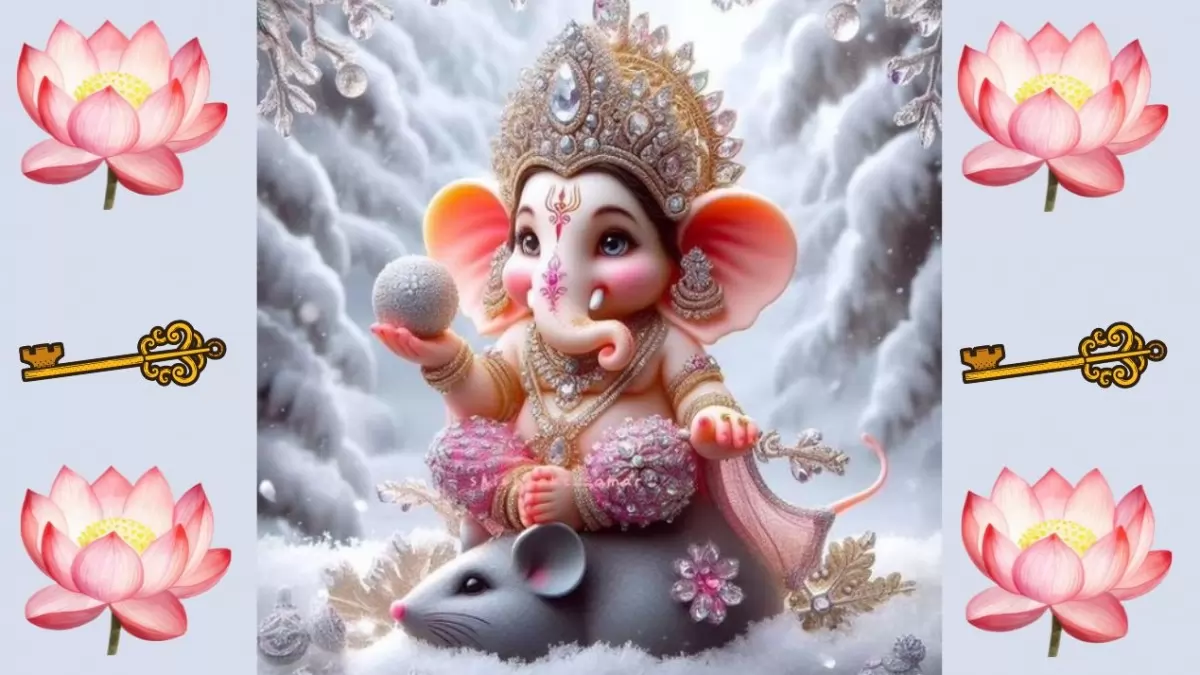
Pinterest and Canva
We all know about Ganesha, the god of removal of obstacles, but do you know who helps him overcome hinderances? How much do you know about the divine mouse which Ganeshji rides?
Mooshakraj, A personality of his own who is worshipped by devotes every year on the 11th day of Ganesh Chaturti.
Mooshakraj is at times depicted as having a human face. This may be reflective of the Hindu belief that souls are transmigrational and might be suggesting the idea that Mooshakraj was a human being in a previous life. There are many aspects of symbolism that are connotated with Mooshak.
Mooshak is sometimes potrayed as having a tail that ends in a lotus flower. Purity and enlightenment are symbolized through this. The tail is meant to project his great spiritual wisdom.
At times Mooshakraj is depicted as holding a key in his mouth. This key symbolises access to knowledge and power. It conveys that he is a guardian of enlightnment and intellegence.
Mooshak is a fascinating character who is a reminder of the importance of wisdom, redemption, and humility.
Wisdom
The mouse is frequently connected to wisdom, and adaptability in Hindu culture. A manifestation of these attributes, Mooshakraj aids Ganesha in overcoming barriers and navigating difficulties.
Humility
Being grounded and humble is also linked to the mouse. Mooshakraj is a reminder that size does not matter. Dispite having a small structure Mooshak can be intelligent and powerful due to his diminutive stature and modest demeanor.
Redemption
According to one tale, Ganesha turned Mooshakraj, a demon at first, into a mouse as a reprimand for his haughtiness. But in the end, Mooshakraj's devotion to Ganesha brought him redemption. This tale shows us that people can find atonement and forgiveness even after making mistakes.





Copyright © 2026 Top Indian News
